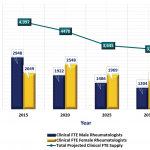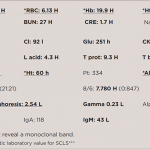WASHINGTON, D.C.—A 70-year-old woman had been diagnosed with rotator cuff disease three years earlier and received an array of treatments. What she hadn’t received was an X-ray. She’d had an MRI, and her doctor—not an orthopedist or a rheumatologist, but a primary care physician—had zeroed in on degenerative changes in her rotator cuff. The problem,…





